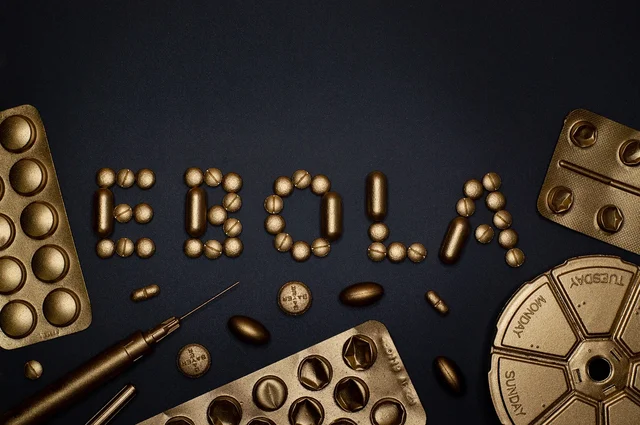Understanding Ebola Virus
Ebola is a deadly and serious virus that has claimed many lives in West Africa since 1976. The virus is considered a zoonotic, which means it can easily be passed from animal to human. It is extremely contagious, and it can lead to severe symptoms like fever, headaches, muscle pain, weakness and vomiting. The virus can be transmitted by bodily fluids from infected animals or people, as well as through the contact of contaminated objects. It can survive on surfaces for up to 24 hours. This makes it easy for anyone to get infected, even though they have not been in direct contact.
According to the World Health Organization (WHO), Ebola has now infected more than 28,000 West Africans and claimed over 11,000 lives. This is the worst and largest outbreak of Ebola to date. There have also been reports of cases in Spain and the United States. However, none have proved fatal. Important to remember is that the majority of cases are found in places with poor healthcare and limited medical supplies.

Ebola virus - Common Causes
Ebola is caused primarily by the Ebola virus. It belongs to the Filoviridae family. The virus is transmitted to infected animals and humans by contact with bodily fluids such as blood, saliva or urine. Contact with infected objects such as needles or syringes can transmit the virus. The virus may also be transmitted to people who have recently lost their lives from it.
It is thought that the virus originated from bats. However, infected animals can transmit it to people without any symptoms. It is therefore important to exercise caution when handling wild animals in places where this virus may be found.
Ebola: Common Treatments
There is currently no treatment for Ebola. Instead, supportive care is provided. It includes the provision of fluids, electrolytes, blood pressure and oxygen, as well as treating any other possible Infections . Some cases have seen some success with experimental therapies like Remdesivir and ZMapp. These treatments remain experimental, and the efficacy of these therapies is still unknown.
To reduce transmission, good hygiene is essential. It includes hand washing, not touching infected people, and avoidance of objects that could be carrying the virus. Safe sex is important in order to stop the spread of this virus.
Ebola virus: Experts' and professional opinions
Professionals and experts agree that Ebola can be prevented by practicing good hygiene and avoiding contact with people infected. They also recommend taking precautions when dealing with animals living in regions where it is possible to contract the virus. Experts recommend that anyone living in an affected area be administered the vaccine to prevent the virus spreading.
Noting that there is no known cure, it is important to remember that early treatment and diagnosis can improve the chance of survival. If you notice any symptoms or signs of the disease in yourself or someone close to you, you should immediately seek medical care.
Ebola Prevention Tips and Natural Remedies
Although there's no cure for Ebola, there are natural ways to lower the chance of getting infected. They include:
- Good hygiene includes washing your hands frequently and not coming in contact with anyone who may be infected.
- Avoid contact with any objects which may have been infected with the virus.
- If possible, get vaccinated.
- If you notice any symptoms or signs of the virus in yourself or someone close to you, you should immediately seek medical attention.
- Healthy eating habits are key to boosting your immunity system.
- Regular exercise is a great way to keep fit.
- Reduce stress levels and get enough sleep.
- To stay hydrated, drink plenty of fluids
These natural tips and remedies may be helpful in reducing the chance of getting infected, but they cannot replace professional medical attention. You should immediately seek professional medical care if you notice any symptoms or signs of the virus in yourself or someone close to you.
Conclusion
Ebola is a deadly virus that can cause death and has been responsible for many deaths across West Africa since 1976. Ebola virus is contagious and can spread from animal to human. Although there are no known cures for this virus at the moment, it can be treated early and may increase your chances of survival. Good hygiene and avoiding direct contact with people infected can reduce the chance of getting infected.
To sum it all, Ebola is a serious virus that can cause severe illness. Good hygiene and avoiding direct contact with people infected are essential to reducing the risk of spreading the virus. To increase your chances of survival, it is crucial to seek medical attention immediately if someone you care about is showing symptoms or signs of the disease.